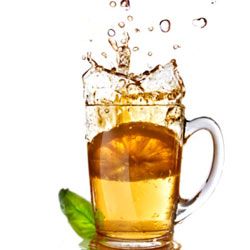Many families have passed down concoctions and elixirs for generations to alleviate pain, discomfort or other ailments. My Big Fat Greek Wedding taught us all to "just put some Windex on it." Maybe your own grandmother thinks that cough syrup is a cure-all for everything from hiccups to snake bites. Lemon juice is one random household item that really can be beneficial to your aching body.
While none of these suggestions can replace professional medical care, they can provide at- home relief for simple sores, burns and fevers. However, if you've rolled around in a pile of poison ivy, just head straight to the hospital.
Advertisement
